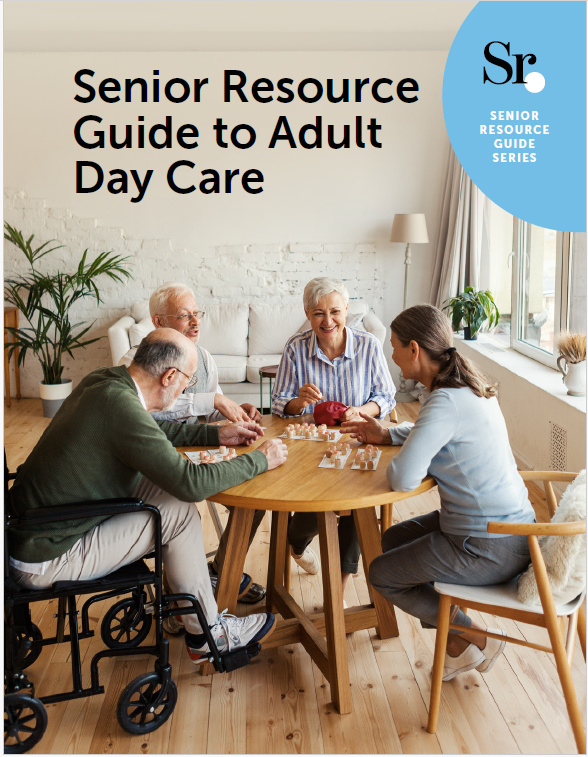Providing Home Care To A Family Member: Before You Make A Plan

Providing Home Care To A Family Member
Sometimes life sneaks up on us.
It’s common to get caught up in your daily routines – work, kids, whole weekends devoted to travel soccer. Weeknights filled with homework help, dance classes, and trying to squeeze in some quality time with your partner. You’re used to your beautiful chaos, but it’s a full-time job in itself.
And then one day you get a call.
Your mother, who is in her 70s and lives alone, fell down a couple of steps. This isn’t the first time she has fallen, but it’s certainly the most unsettling as she has a few bruises. Thankfully, she’s OK otherwise. But – what about next time?
Later that evening, you’re lying in bed and you just can’t shake the worry. You lie awake and wonder, “how did the time go so quickly? And, since when does my mom need so much help?” This is the third time just this week that you’ve had to rush over to her house. On the first day, she had just finished watering flowers on her front porch and locked herself outside. The second time, she was upset because she couldn’t find her purse.
It’s time to do something more.
Aging In Place
Most people think aging in place simply means growing old in your own home. And, while that’s true, it’s really only part of the big picture. The truth is: it’s so much more.
Aging in place includes securing the care and support needed to stay safe at home. The process focuses on improving and maintaining quality of life while planning for the future.
Did you know that 90% of seniors WANT to age at home?
Once you begin noticing signs that a loved one needs help, it’s important to know where to start. And, if you and your family hope to provide that help, you’ll need a plan. Caring for a loved one often requires lots of prepping and teamwork. Here’s how to get going…
Before You Make A Plan
Before creating a home care plan for your loved one, you’ll need to do a whole lot of info-gathering. Your first steps should be focused on assessing health, safety, and wishes. Some of this will require a little investigating. You may need to talk with your family member’s doctor or other health professionals. Your loved one should be included in this process as much as possible. It’s important to ask before looking through their medications or personal belongings as this could be construed as overstepping boundaries; which, in turn, may undermine your intentions, no matter how wholesome they may be. Of course, allowances will need to be made if your loved one has developed impairments that make it difficult to communicate or comprehend clearly and effectively (i.e. Alzheimer’s, dementia, or other memory-effecting conditions).
Assessing Health
When assessing your family member’s health, first gather preliminary info such as medical history and medications taken, then answer some simple questions to determine their needs.
Medical Conditions
| Condition | Healthcare Provider | Medication For This Condition | Past or Ongoing? |
|---|---|---|---|
Major Illnesses
| Illness | Start Date | End Date | Physician | Notes |
|---|---|---|---|---|
Surgeries
| Procedure | Date | Hospital | Physician | Notes |
|---|---|---|---|---|
Medication List
| Medication | Dosage | Frequency | Physician | Purpose | Start | End |
|---|---|---|---|---|---|---|
Vaccinations
| Vaccination | Date |
|---|---|
Lifestyle
| Smoke cigarettes | YES or NO | Frequency: |
| Drinks alcohol | YES or NO | Frequency: |
| Vaping | YES or NO | Frequency: |
| Recreational drug use | YES or NO | Frequency: |
Medical Contacts
| Name | Provider Type | Phone | Address | Notes |
|---|---|---|---|---|
Physical Health
| YES | NO | If their phone rings, can they hear it? |
| YES | NO | When you speak to them, are they able to clearly hear everything you say without straining? |
| YES | NO | Can your loved one get dressed on their own? |
| YES | NO | Can they tie their own shoes? |
| YES | NO | Do they maintain overall good hygiene (i.e. washes and brushes hair, wears clean clothing, bathes regularly and completely, brushes teeth, etc.)? |
| YES | NO | Do they keep a clean, clutter-free home (i.e. they are able to dust, vacuum, mop, and put away items after use)? |
| YES | NO | Can they do their own laundry? |
| YES | NO | Does your loved one keep a clean kitchen and bathroom (i.e. they are able to wipe down and sanitize surfaces, clean up after meals, and wash towels regularly)? |
| YES | NO | Are they able to maintain the yard and do regular home maintenance? |
| YES | NO | Do they have a good range of motion? |
| YES | NO | Do they experience pain when moving extremities? |
| YES | NO | Any leg or apparent muscle pain? |
| YES | NO | Does your loved one have any apparent muscle weakness or paralysis? |
| YES | NO | Are they able to take care of pets (i.e. walking the dog, cleaning the litter box, and feeding daily)? |
| YES | NO | Does your loved one need help with transferring in and out of bed or chairs? |
| YES | NO | Can they get in and out of the shower or bathtub safely? |
| YES | NO | Can they bathe themself completely with no help? |
| YES | NO | Do they require assistance or total bathing from someone else? |
| YES | NO | Do they use a toilet without help (i.e. sitting, standing, and cleaning self)? |
| YES | NO | Do they have complete self-control over urination and defecation? |
| YES | NO | Can they feed themself? |
| YES | NO | Has your loved one unintentionally lost or gained weight recently? |
| YES | NO | Are they able to get exercise regularly (i.e. walking or any form of appropriate movement for at least 30 minutes per day)? |
| YES | NO | Do they need help walking short distances? |
| YES | NO | Can they get around the house safely (i.e. no falls)? |
| YES | NO | Have they had any recent eye pain or changes in sight? |
| YES | NO | Have they had any recent changes in the color of their skin? |
| YES | NO | Have you observed abnormalities in extremities (i.e. bumps, bunions, etc.)? |
| YES | NO | Does your loved one have frequent tremors or ticks they’re unable to control? |
Mental/Cognitive Health
| YES | NO | Is your loved one able to do their own grocery shopping (i.e. planning meals, choosing foods in-store, handling money or a bank card, and loading/unloading their vehicle)? |
| YES | NO | Do they remember to pay bills regularly and on time? |
| YES | NO | Can your loved one drive safely and with confidence? |
| YES | NO | Do they regularly prepare their own meals? |
| YES | NO | If they are on any prescription medication, do they take it regularly and as prescribed? |
| YES | NO | Do they make their own health care appointments and do they understand any care plans provided by their primary physician? |
| YES | NO | Can they manage conditions or illnesses safely and effectively with little or no help (i.e. diabetes, high blood pressure, the common cold, influenza, etc.)? |
| YES | NO | Does your loved one worry a lot? |
| YES | NO | Do your loved one’s own thoughts seem to make them anxious? |
| YES | NO | Do they have a hard time making decisions? |
| YES | NO | Does your loved one experience frequent and apparent mood changes? |
| YES | NO | Does your loved one have a hard time remembering what day of the week it is? |
| YES | NO | Are they easily confused? |
| YES | NO | Can they recognize faces and remember names? |
| YES | NO | Language disorientation – Do they frequently misplace words, struggle to find words when speaking, or do their sentences trail off? |
| YES | NO | Directional disorientation – Do they frequently forget how to get from one place to another, even if it’s just a room in their house? |
Social Health
| YES | NO | Does your loved one frequently socialize with friends and family? |
| YES | NO | Are they involved in volunteer work? |
| YES | NO | Do they participate in activities outside of their home? |
| YES | NO | Do they get bored often? |
| YES | NO | Are they in good spirits most of the time? |
| YES | NO | Do they prefer to be at home rather than out and doing new things? |
Assessing Safety at Home
Here’s a home safety checklist, complete with tips and tricks for some easy protection.
Bathroom Safety
- Is the bathtub difficult to step over?
- Consider remodeling the tub or installing a zero-threshold shower.
- Consider a shower chair.
- Install grab bars in the shower/tub and near the toilet.
- Non-slip bath mat
- Non-slip bath rugs
- Are frequently used items easy to access?
Kitchen
- Are dishes and food in cabinets that are easy to reach?
- Is the floor slippery?
- Consider buying non-slip kitchen rugs
- Is there adequate lighting?
- If there are pets, are food and water bowls out of walking space?
- Is there a step stool?
Bedrooms
- Are lights and switches easily accessible?
- Pull strings, dimmer switches, and sound-activated light switches can be affordable and easy to install.
- Is extra linen stored in an easy-to-reach area?
- Is there enough walking space?
- Consider less furniture.
General
- Are hallways and living spaces well-let?
- Install night lights
- Smoke detectors
- There should be one in each room.
- Batteries should be changed out every six months.
- Carbon monoxide detector
- Are stairs difficult to climb?
- Area rugs should have a non-slip backing.
- Are doorknobs hard to turn?
- Consider installing door levers
- Ensure cords and cables are out of walking space.
- Are outside entryways well-lit?
- Are outside handrails secure?
Related: 7 Ways Family Caregivers Can Get Training & Support
Knowing Your Loved One’s Wishes
How do you know what your family member truly wants if you don’t ask questions? Remember that even with good intentions, making assumptions can backfire. Include your loved one as much as possible in all planning. Ask what kind of care they’re comfortable with and who they would prefer to take care of certain duties. Do they want to make home modifications? Is keeping track of monthly bills weighing too heavily? Make sure to ask questions beginning with phrases like, “is it okay if…” and, “how would you like to…” It’s common for these types of conversations to happen over a period of time rather than all at once. So, don’t get discouraged if your loved one isn’t immediately receptive to receiving a little home care help. Sometimes, the most important step is getting the conversation started.
Locate Important Documents
This task may be the most tedious and even disheartening of them all, but important nonetheless. It may turn out that you’ll never need some of the info. But, then again, what if you need it all? At the very least, you should know where to find any important papers. Here are some common documents of importance you should locate before making your loved one’s home care plan:
- Power of attorney
- Medical proxy
- Advance directive
- Living will
- Life insurance policies
- Birth certificate
- Military records
- Social Security card
Start Thinking About Goals
Goals are absolutely something you want to discuss with your loved one and the rest of your care team. But, there’s no harm in getting started beforehand! Make a list of short-term and long-term goals that you hope to accomplish. What are your main concerns for your family member? What type of support do you feel they would benefit from? Save this list as a rough draft of sorts for when you get together with the rest of your team.
Next Steps

Once you’ve gathered all the documents and information necessary to begin, you can start making some calls to build your caregiving team! Building your team comes next…
Next: Providing Home Care To A Family Member: Building Your Team
Popular Articles About Home Care
Originally published May 18, 2022







